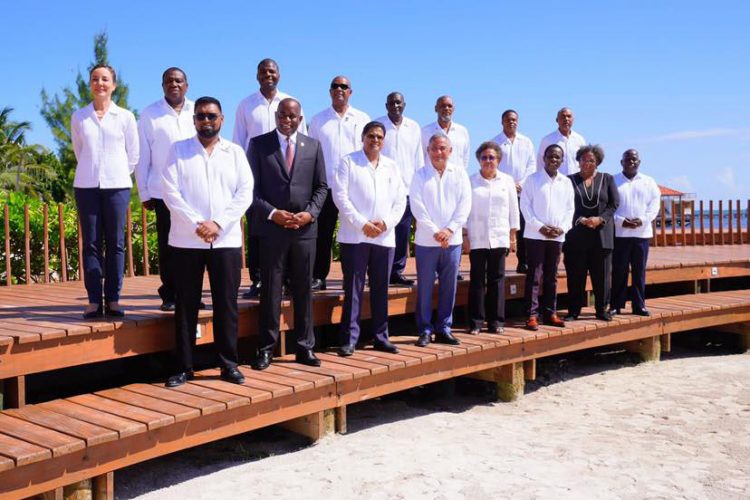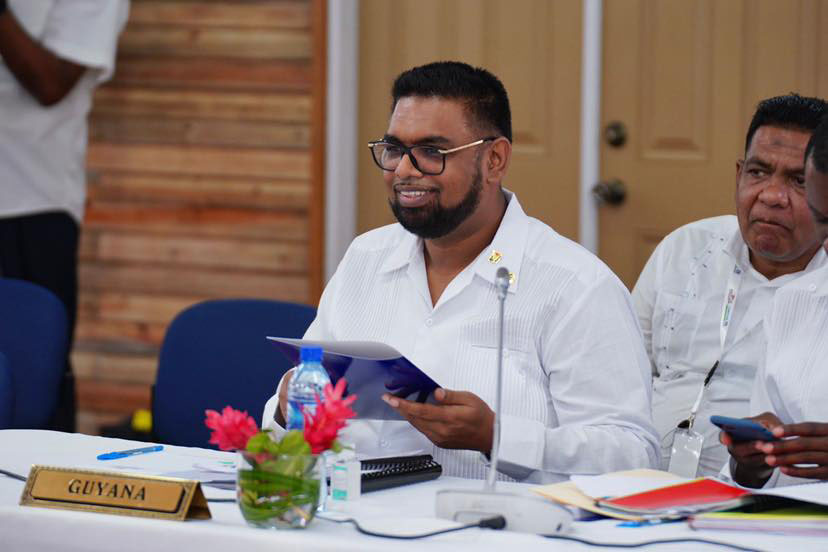This week’s Thirty-Third Inter-Sessional Meeting of Heads of Government of the Caribbean Community (CARICOM) afforded regional leaders yet another opportunity to set aside lengthy presentations and instead, make a focussed effort to arrive at implementable solutions to some of the long-standing challenges that continue to confront the region. None of these issues can be more important than the need to arrive, and quickly, at a consensus on how to move forward on regional food security, an issue on which most regional analysts have, up until now, awarded the region nothing better than a fail grade.

The evidence of dithering and prevarication is etched in countless intra-regional discourses that have ensued over a protracted period of time on the need for the Caribbean to significantly increase its own food production levels whilst simultaneously seeking to push back a regional food import bill, which, these days, reportedly totals a few billions of US dollars.
Truth be told there is no evidence that, over the past two decades or so, regional discourses about Caribbean food security have led anywhere. Like so many other things in the region, the political approach to tackling the issue of food security has been encrusted in layers of polemic and promises and the preparation of studies that take protracted periods to complete and ultimately go nowhere. Nothing, it seems, will change the script.
This time around, it is Guyana’s President, Irfaan Ali, who, prior to the start of this week’s staging of the Thirty-Third Inter-Sessional Meeting of Heads of Government of CARICOM issued a statement asserting that regional food security and the removal of trade barriers are high on the agenda of the meeting. The Guyanese president has, in recent months, been making pointed statements about the need to enhance the region’s food security status and at this week’s Heads of Government meeting there were signs that he is being eased into the position of becoming the region’s lead spokesperson on agriculture and food security.
This much was evident in a release emanating from his press and publicity unit on Wednesday in which his “passion and strategic outlook for transforming regional agriculture” was hailed by CARICOM Heads.
Leaving aside the predictable play on words, it appears as though the Belize meeting has served to, among other things, enable the official ‘anointing’ of President Ali as the region’s point man on agriculture and food security as a whole. How much this would mean in real terms is, however, unclear.
President Ali is reported to have promulgated an action-oriented and solution-based proposal, aimed at realising the 25% reduction of the food import bill by 2025, quite a presentation if the release is to be taken seriously. What it says, in effect, is that the President has in fact been set an assignment which exceeds anything that has been put on the plate of any of his predecessors insofar as agriculture and regional food security are concerned.
What will of course be necessary if Guyana and the region are to track the course of what the release describes as the President’s “action-oriented and solution-based proposal,” is the sharing of the proposal with the people of Guyana and the rest of the region, in order to allow for some sort of tracking of the pace of progress in what, from a regional perspective, has been by far President Ali’s most important assignment so far. Frankly, it would be, by no means fair, to begin by applying a looking glass in seeking to determine the likelihood as to whether the Guyanese president will succeed or otherwise in what is his most important regional undertaking up to this time. What cannot be set aside however, is that in asking him to spearhead the planning and effective implementation of a regional food security plan for the region, we would essentially be asking him to succeed where all of his predecessors have failed.
But the matter does not end there. If the people of the region are to buy into their governments’ undertakings on the issues of reducing extra-regional food imports, there is every reason why information on the respective Country Reports “of current and target commodities to achieve 25% reduction by 2025,” outlining both constraints and actions needed should be shared with the regional publics since one assumes that these documents can provide some kind of barometer in the matter of monitoring the pace of progress being made on the crucial matter of reducing extra-regional food imports.
If the targeted reduction of extra-regional food imports by 2025 is to be realized, it is difficult not to embrace the Guyanese president’s point with regard to the need for regional governments to increase their average spending on agriculture beyond the estimated prevailing 2.1%. Here, the point should be made of course that beyond increasing expenditure on agriculture, including agro-processing, account must be taken, simultaneously, of whether or not the Ministries of Agriculture and other state agencies in the region are sufficiently well-equipped, in terms of technical skills to implement comprehensive programmes that can take us to our food importation reduction target within the desired time-frame.
There is evidence that Guyana’s own Ministry of Agriculture may itself be deficient in terms of its ability to respond effectively to meeting the time lines.
On average, CARICOM member states expended an estimated 2.1% of national expenditure on agriculture. However, President Ali implored that a significant increase is required of about 5% expenditure in agriculture by 2025 by each member state. Guyana is committed to expending 10% of the national budget to agriculture by 2025.
While President Ali makes the point that “there has been concrete progress in access to financing for agriculture investment, financing through the CARICOM Sustainability Agriculture Credit Facility… “ there is manifest evidence, here in Guyana, of serious deficiencies in our response capabilities in response to flooding that continues to afflict the agriculture sector, and which, each year, results in millions of dollars in crop losses, consequential price hikes and reduced ability to export to both regional and extra-regional markets. Loopholes like these are going to have to be closed if Guyana is to lead the way in creating a condition of regional food security.






